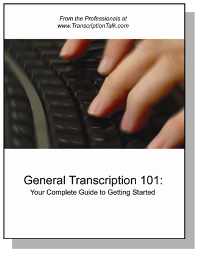We've talked a lot about the importance of using text expanders, whether Microsoft Word's Auto Correct or an accessory program such as ShortKeys, to increase your productivity. Equally as important as adding text expanders regularly, though, is cleaning out those that may be getting in your way or those that you do not use and simply clutter things up.
This weekend I started that process for myself. I started with over 2,200 text expanders, which does not include alternate endings to many of those entries since ShortKeys does not count those separately.
Because I recently stepped down from a regular file that I had been doing for close to two years now, my first step was to take all of those expanders and put them in their own separate file and delete them from my main file. This way, if I fill in for the new person working on this assignment, I can open that file back up without having to deal with those expanders on a daily basis.
I then went through and looked for expanders that fall into the following categories:
*Duplicates
For whatever reason, I had some expanders entered with two different shortcuts even though I only use one of those shortcuts on a regular basis. I didn't have a huge number of these, but I got rid of the ones I did have.
*File-specific expanders
Shaina has a system that works really well for her when it comes to entering file-specific expanders so that she can easily delete/overwrite them when she moves on to her next file. I haven't yet tried her system, but I hope she'll tell you more about it soon because you may find that it works for you as well.
On the other hand, I don't have a really good system for this, and so I had quite a few words that I will most likely not come across again, including names of speakers, that I went ahead and deleted.
*Unused expanders
At the end of the day, I find that I don't end up using every expander that's entered into my program. For example, I once added a huge list of financial expanders, but because I no longer do financial earnings calls, some of those just never get used. (On the other hand, some of them come up fairly often in other files, and so I appreciate having them in there.) Other times, I might have thought an expander would be a good addition only to realize that I just can't seem to put it into practice. My first step is to make a concerted effort to use these, but if I still find that I'm not using them, I go ahead and delete them.
*Alternate endings
Some of my expanders were actually alternate endings to other entries, so I went ahead and combined as many as I could. Having these included as one entry makes it easier to comb through the entries when cleaning them up and also easier to make changes if I find that a shortcut is not working for me.
After my first run-through, I am now down to 1700 expanders! I have quite a few that I actually hope to enter this weekend, and I'll probably do one more run-through to cull any others that I missed.
Being able to do this is actually one of the many reasons that I prefer ShortKeys to Auto Correct. Auto Correct's list is great for correcting common spelling errors, but the list is so huge that it's just too overwhelming to sort through on any kind of regular basis.
How about you? How many text expanders do you have? How often do you clean them out?
Friday, June 13, 2008
Cleaning up Your Text Expanders
Posted by Mandi at 4:35 PM
Labels: productivity, text expanders, using text expanders
Subscribe to:
Post Comments (Atom)









































4 Comments:
You mentioned Microsoft Word... so I just have to chime in. :D
With Word 2007, there are some additional enhancements that will help your productivity in transcription.
The spelling checker can now find and flag some contextual spelling errors. Have you ever typed a mistake similar to the following? I will see you their. In Office Word 2007, you can enable the "Use contextual spelling" option to get help with finding and fixing this type of mistake.
More Info on Grammar and Spelling in Word 2007
When you use the spelling checker, it compares the words in your document with those in the tool's main dictionary. The main dictionary contains most common words, but it might not include proper names, technical terms, or acronyms. In addition, some words might be capitalized differently in the main dictionary than in your document. Adding such words or capitalization to a custom dictionary prevents the spelling checker from flagging them as mistakes.
Custom Dictionaries in Office 2007
How to customize the color of the spelling and grammar checker underlines in Word 2007
- Kelley
Microsoft Office Technology Specialist
When we write a comment or may be write any kind of data. That time we are trying to find some helping cv. Here is only some way to find also to remove this data which is good for us and may be this is good for you.
Whenever we create the remark or even might create any type of information. That point all of us want to discover a few assisting resumes. Here's just a way to locate and to get rid of this particular go to this site information that will work for all of us and could end up being this particular will work for a person.
Some time these text expanders are really needed when you need to enlarge a little piece of writing and you want more. http://www.fellowshippersonalstatement.com/medical-fellowship-personal-statement-services/gastroenterology-fellowship-personal-statement/ You can find more info here
Post a Comment